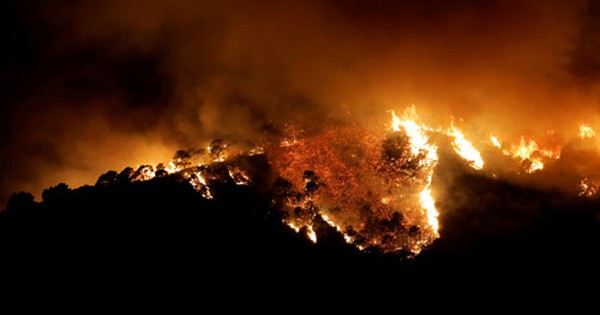Global food prices hit a record
Global food prices rose at their fastest rate ever as the conflict in Ukraine squeezed supplies.
The FAO Global Food Price Index in March was 159.3 points, up from 141.4 points in February, or 12.6%. This is a new record for this index when it started to be measured in 1990.
Since mid-2020, the index has increased by about 75%, higher than the old records recorded in 2008 and 2011. Food prices have increased continuously for the past 7 quarters, the longest increase since 2008.
The United Nations warned that prices could still go higher. That’s bad news for the world. According to an analysis published last month by the Center for Global Development, the rising costs of war and the consequent sanctions on Russia – if not acted upon – will push up more than 40 million people. into extreme poverty.

Evolution of the global food price index.
The war has devastated supply chains in a key region in the Black Sea, increasing pressure on global trade flows and causing panic over shortages of staples like wheat and cooking oil. That has sent food prices – which had risen before the conflict began – to record levels.
Ukraine’s ports have been closed and many boats are avoiding the area, which accounts for about a quarter of the total grain trade. Farmers in Ukraine, the top exporter of sunflower oil, are expected to drastically reduce the area under cultivation, while struggling to export their harvested output. Elsewhere in the world, high energy and fertilizer prices are driving up the cost of food production.
In addition, farmers around the world continue to face extreme weather events and the effects of climate change. For example, the worst drought in decades is causing millions of livestock deaths in the Horn of Africa, or as global warming is worsening food insecurity in other regions. places like Afghanistan.
Food prices rose the most in poor countries, where groceries make up a large portion of consumer budgets. The United Nations’ World Food Program recently said that expensive staples in import-dependent Middle Eastern and North African countries are dimming prospects for a recovery.
Erin Collier, an economist at the Food and Agriculture Organization of the United Nations, said rising costs are prompting some countries to stop importing, look for new suppliers or release domestic stockpiles. Although, that won’t be a permanent fix.
The FAO also raised its outlook for global grain stocks – usually a good sign for supply – but this time it was largely due to grain being trapped in the Black Sea region. Ukraine’s exports will be particularly hard hit from the war. Wheat shipments fell by 5 million tons and corn by 12.5 million tons compared with previous estimates. Freight and financial challenges are also affecting Russian sales.
Difficulties will also drag to the next crop. Ukraine was already growing wheat for months before hostilities broke out, and the FAO expects yields to drop by at least 20 percent because of destruction, limited access to fields or lack of resources to harvest. Russian production could be affected by agricultural input import challenges.
“Looking ahead to 2022-2023, we are already seeing signs that output will fall in Ukraine. Exports really depend on the duration of this conflict,” said Erin Collier.
Session An (according to Bloomberg)
at Blogtuan.info – Source: vnexpress.net – Read the original article here



